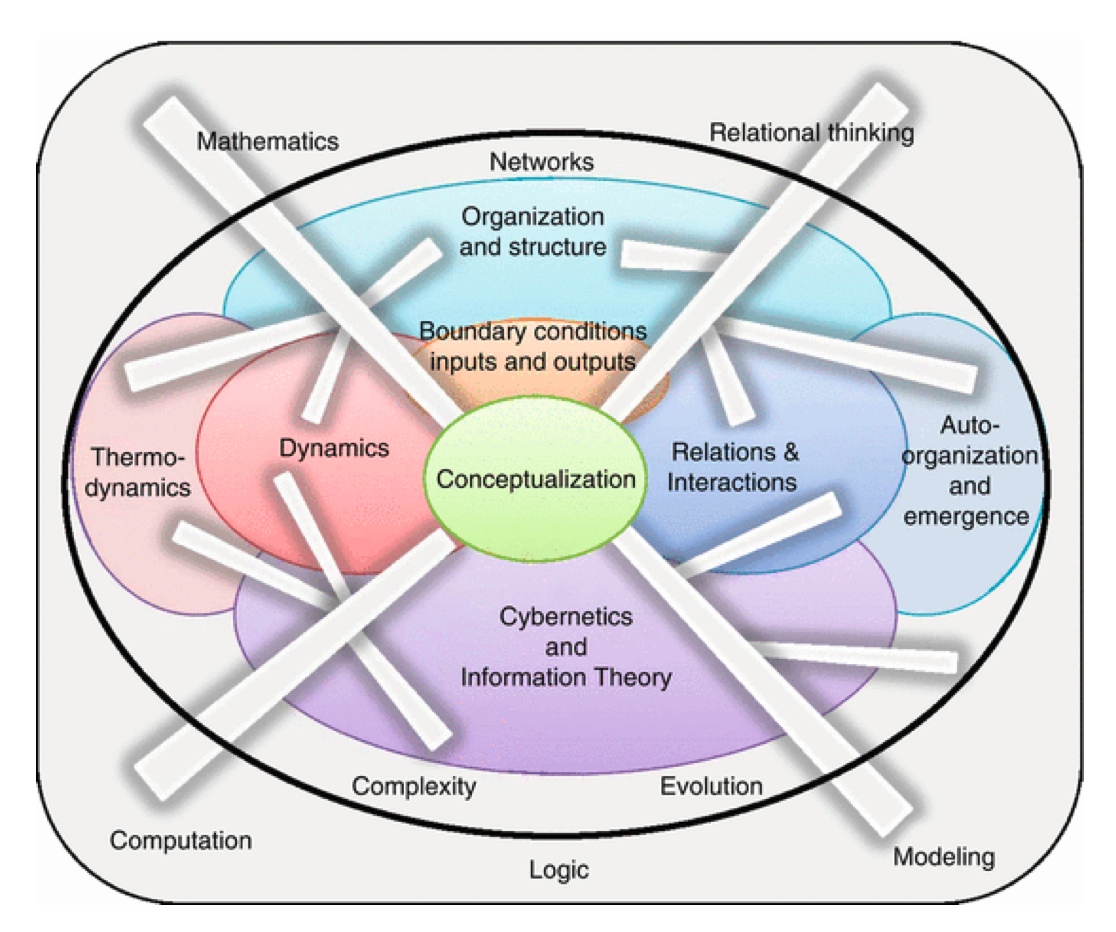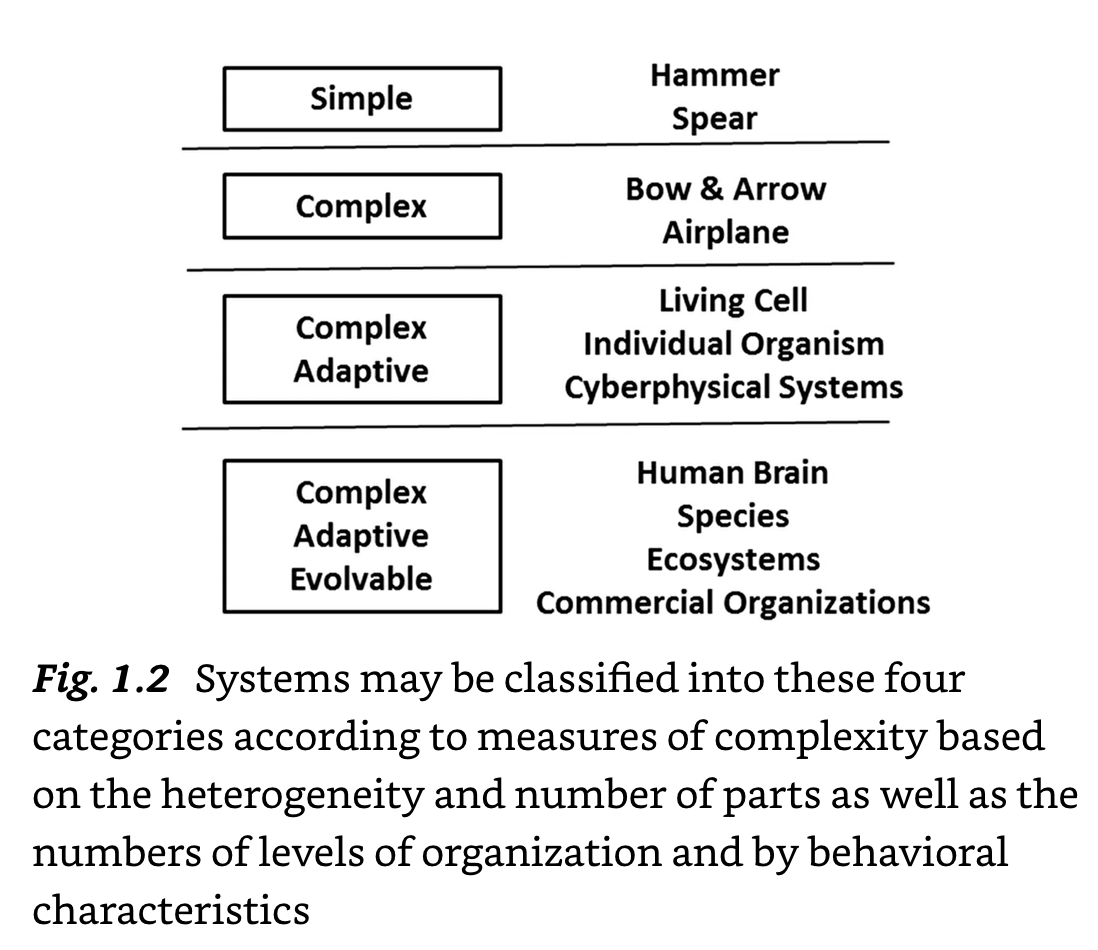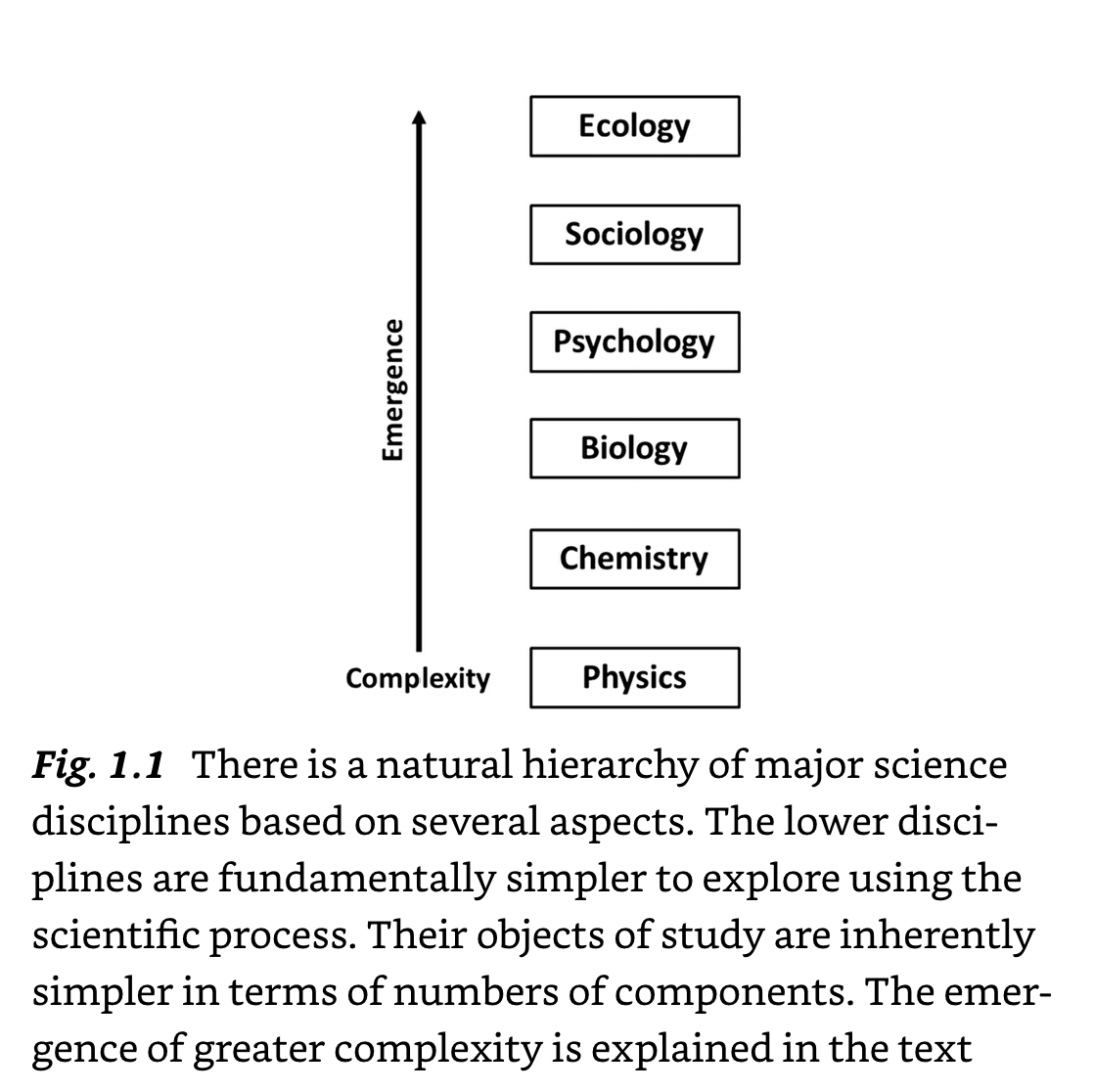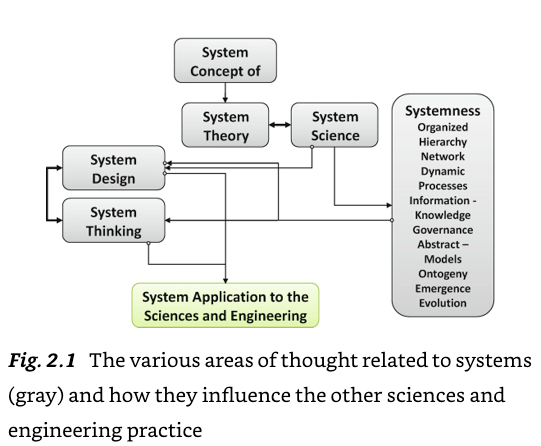My feelings about systems science in 2022 mirror my feelings about Bitcoin in 2012.
Bitcoin seemed mysterious, complex, powerful, and important. I didn't understand it, so I felt compelled to learn about it. I felt more people should have been taking it seriously, and was confused by their lack of interest. I believed Bitcoin would transform the way humanity related to money.
I believe systems science will transform the way humanity relates to knowledge and understanding.

What is Systems Science?
"It seems legitimate to ask for a theory, not of systems of a more or less special kind, but of universal principles applying to systems in general." – Ludwig Von Bertalanffy, General System Theory (1968)
Systems science is the interdisciplinary study of systems.
It doesn't focus on a specific type of system, it focuses on systems in general. It aims to understand the common features, properties, and patterns that occur in all types of systems.
Physicists study matter. Chemists study chemicals. Biologists study organisms. Psychologists study humans. Sociologists study societies. These specialists study phenomena by breaking them down into smaller and smaller components. They run controlled experiments to determine causal effects. They rely on specialized methods and tools developed to solve problems within their domain.
Systems scientists study the patterns regulating matter, chemicals, organisms, humans, and societies to see what they all have in common. These generalists study phenomena by identifying the purpose of a system, examining how its internal subsystems coordinate to achieve that purpose, and discovering how the system relates to other systems in its environment. They use systems analysis and computer modeling to discover connections, internal causal mechanisms, and patterns. They rely on general methods and tools that can be applied in any scientific discipline.
Systems engineering is a well-established academic discipline that teaches a standard set of skills for designing and managing complex systems. The skills apply to the design of airplanes, bridges, or computer networks. Its methods have limited utility when dealing with systems that are complex, adaptive, and evolvable.
Systems science is a largely unknown and underdeveloped discipline that teaches a standard set of skills for gaining deep understanding of complex systems. The skills apply to the study of economies, brains, or climates. Its methods can help us grapple with complex adaptive evolvable systems that can't be engineered and easily subjected to tightly controlled experiments.

How Can Systems Science Help Us Understand The World?
We're reaching the limits of what can be discovered using the traditional scientific method which relies on controlled experiments and prioritizes prediction.
It has worked well for simple systems, like atoms, where we can isolate a small number of key variables to accurately and confidently determine causal mechanisms.
It has been much less useful for complex systems with a higher quantity and variety of parts, like societies, where this isn't possible.

Systems science looks for interdependent causal networks rather than deterministic mechanical causes. It focuses on process, dynamics, and the emergence of the unpredictable.
Standard tools of systems science include: Agent-based modeling, system dynamics modeling, and network analysis.
Agent-Based Modeling
Agent-based models (ABMs) are used to explore how complex behavior emerges in a bottom-up fashion from the actions of individual agents following simple rules. ABMs have been used to study the spread of infectious disease, forest management, and the banking system.
System Dynamics Modeling
System dynamics modeling is used to understand the non-linear behavior of complex systems by describing systems with stocks, flows, and feedback loops. System Dynamics modeling has been used to study homelessness, Ethereum's economics, and complex socio-ecological systems such as water management systems.
Network Analysis
Network analysis is used to discover the unique structural and dynamical features of complex systems. Any system can be represented as a set of agents (nodes) connected by relationships (edges). Network analysis has been used to study the US-China hegemonic transition, the evolution of the Bitcoin economy, and the network of global corporate control.
2/ In "Network Analysis of the US–China Hegemonic Transition," the authors demonstrate how complex network theory allows for a more holistic analysis of US/China competition than traditional approaches embraced by mainstream political economy.https://t.co/yx7rgrhmec
— Shingai Thornton (@shingaithornton) May 12, 2022
A Systems Understanding Framework
ABMs, system dynamics, and network analysis have helped us better understand a variety of complex systems.
What we are lacking is a standard methodology for "doing" systems science.
Dr. George Mobus proposes to change this by developing a generalized framework for conducting "deep systems analysis". He argues that such a framework will allow us to achieve deep understanding of any system in any domain before we start the modeling process.
The framework, developed in his latest textbook, consists of three processes:
- System identification and determination of boundaries
- Environment analysis
- Recursive system decomposition
Mobus has also developed a formal language of systems, "systemese," that facilitates effective communication between diverse stakeholders working on systems.
I'm in the early stages of studying this work but am encouraged and enthralled by what I've read so far.
Why Study Systems Science?
Reading about systems science satisfies my curiosity. I enjoy learning about how complex systems work. My intuition tells me that studying systems science will increase my capacity for analysis and problem-solving in all of the areas that interest me.

Studying systems science will put me in a better position to work towards elevating its status as an academic discipline. I believe this will provide society with greater interdisciplinary understanding, better mechanisms for threat detection and adaptation, and improved methods for designing and managing complex systems.
Following my intellectual curiosity and ignoring external skepticism about obscure ideas has worked out well for me in the past. It's well past time for me to dive down a new rabbit hole.
